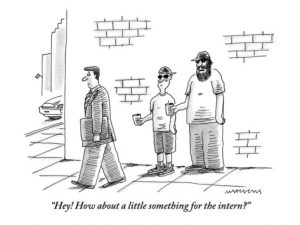Employers and job-seekers alike need to be aware of the most recent recruitment trends. Employers need this information in order to stay relevant and focused on the best hiring practices; job-seekers find this information valuable in order to remain tuned in to wha t they can expect when applying for a job. Therefore, this month’s article discusses a few of the most interesting recruitment trends that have been steadily becoming more and more popular from the beginning of this year.
Anonymous Applications:
Better known as ‘blind interviewing’, this trend is a direct result of business operations that encourage diversity. Firms like Google are experimenting with various methods of blind interviewing. It is thought that the traditional application process allows for the hiring staff to be swayed by unconsc ious biases. For example, visual and voice biases can occur during a face-to-face interview. Someone could be perfect for the job but have a terribly annoying squeaky voice. Replacing face to face interviews with telephone or written questionnaire ones can reduce the unconscious biases that most normal humans have. It’s a bit ridiculous, but there it is.
Digital Applications:
Applying for jobs online has been a popular way of trying to get a job for years, but it is beginning to replace traditional applications. It is important that employers have a strong online presenc e and research the best places to post new job openings. In order to productively search for jobs, applicants need to be adept at using the internet and word-processing products in order to find the best jobs to apply for. It is also imperative that applicants research the company they’re applying for and use CV builders in order to send out professional resumes.
Moving Beyond the Recession Years:
It seems like things are taking a turn in favour of candidates this year. As the employment market continues to improve, the pressure is now on for employers, who want to attra ct the best candidates to their company. The responsibility of job applicants is to sell themselves well and be marked out as a candidate instead of a mediocre one. Recruitment companies need to improve their selling capabilities to top candidates. There are many ways of doing this, including adopting a more scientific candidate research approach instead of an intuitive one. Where they previously tried to convince the candidate to apply and used a more intuitive approach, conducting surveys to find out how and where candidates apply for a job will inevitably bring in more of the quality job applicants. For centuries, sourcing or finding talent has been extremely difficult. However, because of the growth of the internet and social media, it is now easy to find someone who can do the required job. The challenge now for employers is to find the best candidate. The challenge for applicants is to stand out.
Generation Z:
2016 is a unique year for employers as it is one of the first years when members of ‘Generation Z’ will be old enough to enter the workplace. ‘Generation Z’ are those who were born after 1995. According to the Business Insider, Generation Z young adults are ‘independent, stubborn, pragmatic and always in a rush’. This is a generation that does not know a world without the internet. Spoon-fed on Youtube ‘How to’ videos and knowledge at their fingertips, the introduction of Generations Z-ers into the workplace will definitely give employers a lot to think abo ut in terms of branding and representation.
The points above represent some of the most frequently cited recruitment trends for this year. However, it is not a comprehensive list. Evidently, 2016 is a year that presents new challenges to both the employer and prospective employee.
Footnotes:
1. Ere Media Article by Dr. John Sullivan
2. Hiring in the Digital Age: What’s Next for Recruiting?
3. Everything you need to know about Generation Z
Copyright Gillian Rixey, Company Jobs Direct Ltd.
by Gillian Rixey
(Gillian is a PhD qualified freelance writer and scholar born in Ireland but currently residing in the United States.)















































